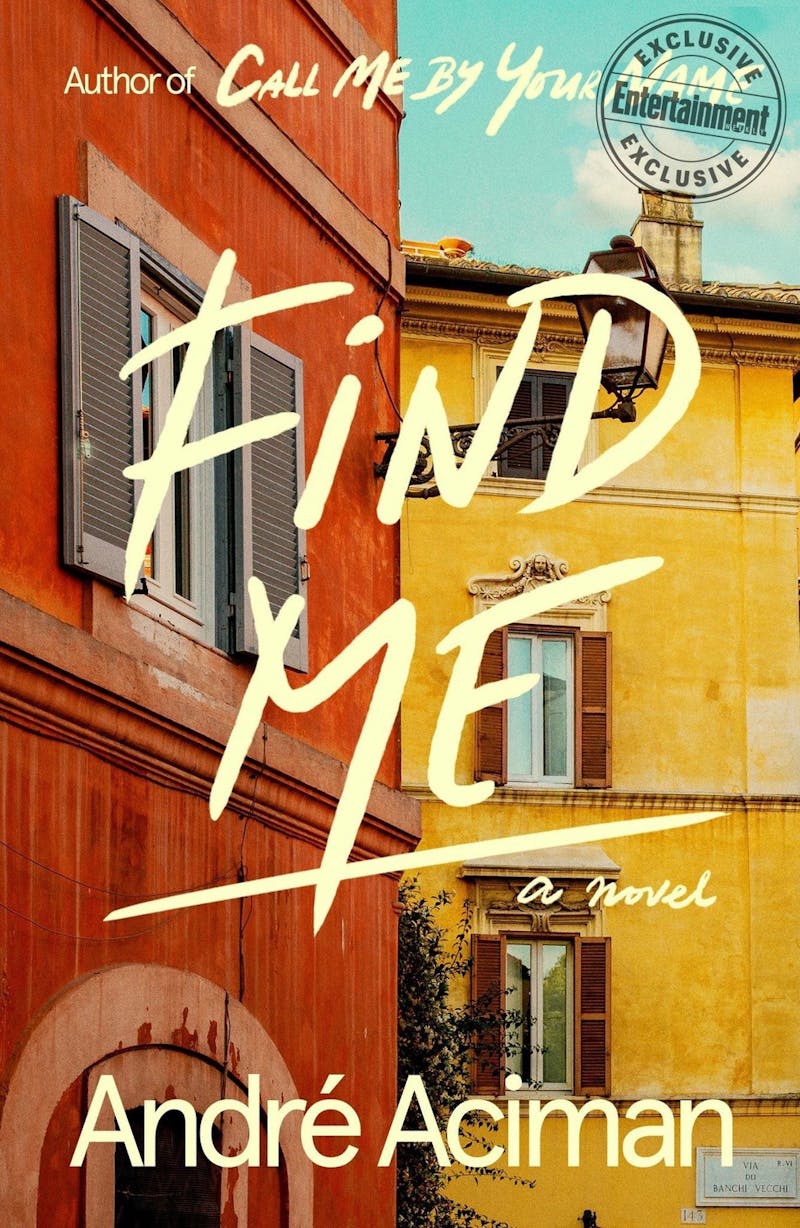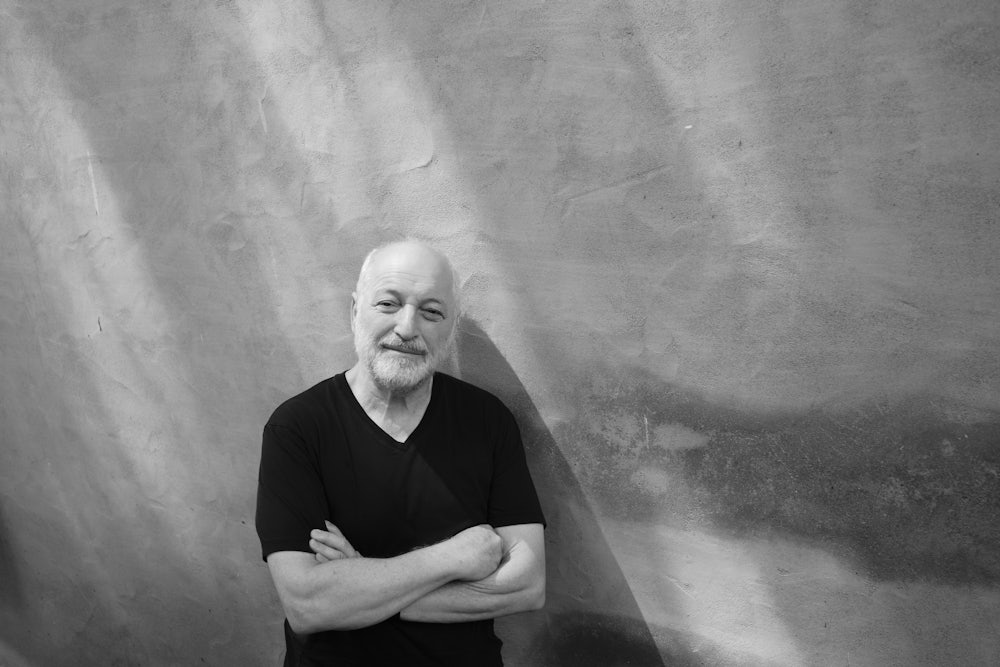It’s a little misleading to call Find Me, the new novel by André Aciman, a sequel to Call Me by Your Name, Aciman’s first novel, which was published in 2007 and adapted in 2017 into a critically acclaimed film by the director Luca Guadagnino. Call Me by Your Name chronicles the smoldering romance between Elio, an American teenager living with his parents in Italy, and their houseguest, Oliver, a doctoral student. The romance, like the summer, ends, and though the pair meet sporadically throughout the years, it is never resumed.

Find Me opens not on either of that story’s leading men, but 10 years later, on Elio’s divorced father, Samuel, who has a sexy Linklater interlude with Miranda, a young woman he meets on a train from Florence to Rome. The next section finds Elio, now a classical pianist, in pursuit of the much older Michel, whom he meets at a concert, all the while thinking of Oliver. Then we move to Oliver, now a professor in the United States, who spends his own house party in silent, imagined conversation with Elio, despite being married, and chasing a couple of party guests who he claims remind him of Elio. Only in the final brief segment are Elio and Oliver reunited—and when you turn the book’s final page, you may find yourself wishing they hadn’t been.
That Find Me is discontinuous with its ostensible precursor is a strength, not a weakness, that allows us to see familiar people and places afresh, in new stages of life. After all, Aciman wrote three novels and a book of essays in the time between Call Me by Your Name and Find Me; naturally his style and sensibility have evolved. In theme and mood, Find Me is most similar to Eight White Nights, Aciman’s avowed favorite of his own works, which details a stumbling weeklong affair between two neurotic New Yorkers whose every word and thought is plagued by self-doubt. So, too, are the characters in his latest: hesitant, overanalytical in mind, self-editing of speech, wracked by the possibility of alternate futures in which they made different decisions.
The first two sections of Find Me, the furthest in time from Elio and Oliver’s reunion, are the book’s most powerful. They showcase Aciman’s finest mode: sketching the contours of a relationship through its small confidences, gestures, and extended conversations that dispense with naturalism in favor of exposing the essence of the pair’s dynamic, its delicate back-and-forth play, balanced on the edge of their passions. In their first exchange, Miranda says to Samuel, “Aren’t those the absolute worst scenarios: the things that might have happened but never did and might still happen though we’ve given up hoping we could?”
Like their dialogue, the dalliances of the two couples give off a distinct air of unreality. Samuel and Miranda, and Elio and Michel, are perfect strangers who forge a sudden, fierce intimacy. In Aciman’s world, the ordinary time of seconds and minutes does not apply to the extraordinary out-of-timeness of love, where the newly enamored can feel they’ve known each other forever, and in their transmuted reality, they have. They forget to exchange last names, cell phone numbers. The intensity of their connection disrupts the dailiness of life, bringing to bear past and future, sending lovers into a wistful tailspin. They review recent history in minute detail in order to confirm it really happened. They miss one another while they are still together; for Aciman, desire is right away haunted by the prospect of its loss. Sami asks throughout his affair with Miranda, “Is it too late?” “You’re not a present-tense kind of person,” Miranda tells him.
The dissertation Miranda’s father is editing comes closest to spelling out the ethos that suffuses all of Aciman’s work. “Life and time are not in sync,” says the father, whom the two visit in the course of their romance. “It’s as if time was all wrong.” This explains the preponderance of May-December romances across Aciman’s oeuvre: If time is out of whack, then what meaning can age have? Aciman gave philosophical shape to this attitude in Alibis, his 2011 essay collection, in which he calls himself a “psychological temporizer,”
who defers, denies, disperses the present, who accesses time (life, if you wish) so obliquely and in such roundabout ways and gives the present so provisional and tenuous a status that the present, insofar as such a thing is conceivable, ceases to exist, or, to be more accurate, does not count.
This pathology afflicts Aciman’s characters with the sense that all the moments of their lives are happening at once, and they can only access the present through those other, not-present moments. Sami says he had been waiting for Miranda even before she was born, experiencing their connection as both destiny and fragile chance. The book’s second section centers on fathers and sons—in other words, on the impingement of the past on the present, and on the warping of time’s supposed linearity, in the generational repetition from Michel’s father to Michel to Elio, who is framed explicitly as a son figure to Michel. Michel confesses he is using Elio as a substitute for his own, somewhat estranged son, as someone with whom he can speak of his father, a closeted gay pianist: closeted both about his sexuality and about his piano-playing, which he undertook at night while the family was sleeping.
Music, for Aciman, forms an ideal metaphor for secret desire and for the cycles and rhythms of life, like the elements of a piece of music for which the book’s four parts (“Tempo,” “Cadenza,” “Capriccio,” and “Da Capo”) are named. In both “Tempo” and “Cadenza,” there is repetition, circularity, recurrent themes. Like music, “Fate,” says Michel, “has strange ways of teasing us with patterns that may not be patterns at all but that hint at a vestigial meaning still being worked out.” Elio reprises the summer of country-house bliss he spent with Oliver by articulating a fantasy for Michel, in one of the novel’s loveliest passages:
Every day at lunch we’ll have the same frugal foods: tomatoes, cut into quarters, with country bread I love to bake, basil, fresh olive oil, a can of sardines, unless you broil a fish for us, eggplants from the garden, and for dessert fresh figs in late summer and persimmons in the fall, berries in wintertime … I am so eager to play for you that short pianissimo from Beethoven’s sonata.
From memory, he imagines the future into being. His single season with Oliver becomes the cycle of the year with Michel, the accretion of days that weaves the durable fabric of love, and that was cut short with Oliver. In fact, each section of the novel is an indirect commentary on the prior Elio-Oliver romance: The first replicates the pitch of its ardor among two people who thought they had missed their chance; the second offers a matured vision of connection between two men, permeated with wisdom about earlier, lost days.
But the closer we get to the return of the original pairing, the less convincing that commentary becomes. In the penultimate section, Oliver’s obsessive musings on Elio at the party, a result of the conviction that his life stopped when he left Elio and that nothing truly worthwhile has happened since, beggared the belief of this reader, usually happy to inhabit a surreal, dreamlike mood but unsettled by a man who feels he’s wasted the last 20 years of his life yet hasn’t done a thing about it except whimper into the ether. In Elio’s absence, Oliver has built a family, a successful academic career, and, judging by the crowd that swells this going-away fête, a sizable circle of friends. Yet he experiences his distance from Elio as the only salient fact of his adult life. “Two words from you and everyone’s reduced to a stand-in,” he thinks, lonely in a crowd.
The final section, the novel’s least impressive on the levels of sentence and subject matter, affords wish fulfillment for readers who believe in the inexorable pull of fate, or soulmates, or who simply couldn’t stand to see their striking young paramours separated for good. I remain, for my part, flummoxed. The whole book until this point has been hammering home the message that time is fluid, labyrinthine, and that even if Elio and Oliver never see each other again, their episode together persists in their memories, breathes life into their other loves, and surfaces in all moments in time. “Closure,” says Miranda’s father, “is either for the afterlife or for those who stay behind.” So why tie things up so neatly?
What Aciman does so deftly in the novel’s first two sections is construct a world that runs parallel to the one we left in Call Me by Your Name, one with some recognizable faces, bearing the imprint of the past but embroiled in new stories, ones we can become invested in on their own narrative merits. Elio and Oliver’s reunion, by contrast, comes off as a regression, a bleating insistence that nothing has changed since that lusty summer, and that the intervening decades might be discarded with a wave of the hand. It does a disservice, I think, to that lush, delirious romance, luminously rendered in the best of Aciman’s prose, to imply that it invalidates the next 20 years of these men’s lives. That Aciman lapses here into melodrama and cliché suggests he isn’t convinced, either.
For now, I prefer to leave Elio and Oliver as the movie does, torn in different directions, and in its masterful last scene, with Elio in tears, then the hint of a smile, warmed by the heat of the fireplace, his father’s unwavering empathy, and the irrefutable beauty of first love and first heartbreak. It is that grief, after all, that makes way for the conception of future love.
